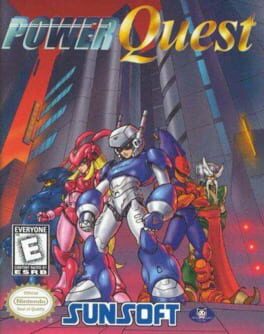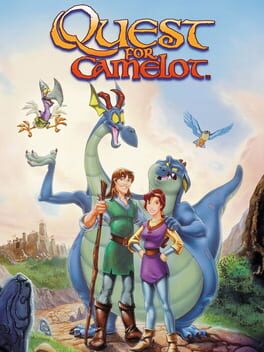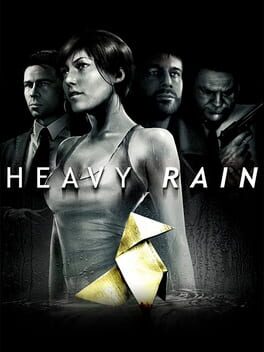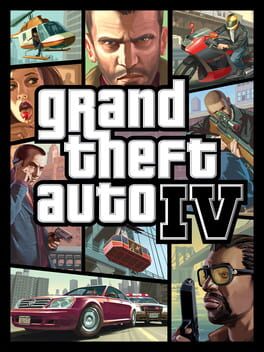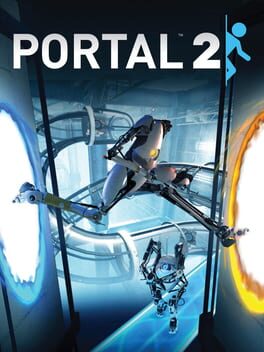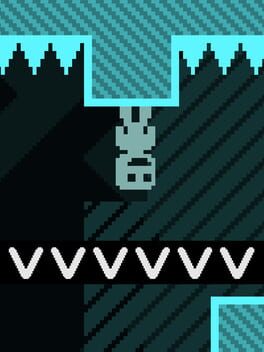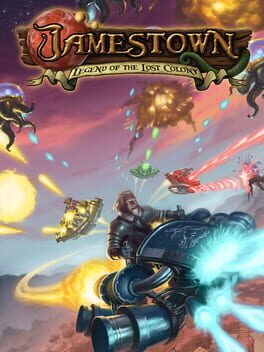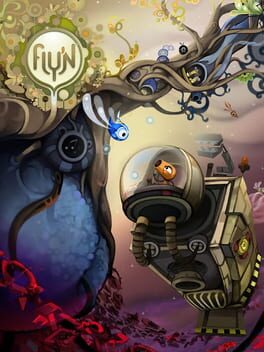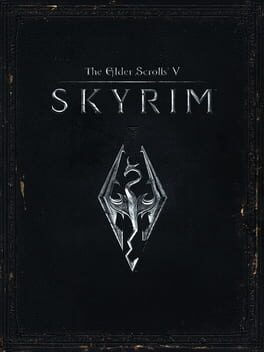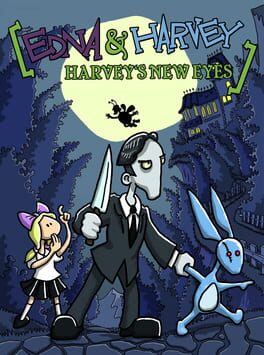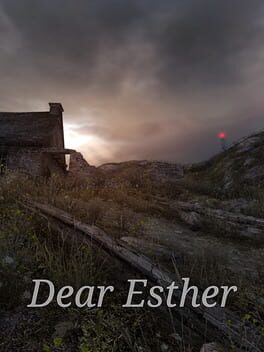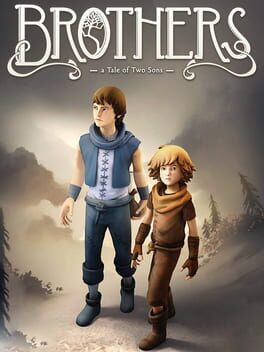snackerfork
1998
Extremely underrated GBC fighter that does not at all feel like it should be possible, and somehow it is anyway - other than a weird input buffer this would have been considered an all time fighting game if it was released anywhere but a handheld.
Rock solid controls, serious depth (did you know this game has guard cancels?), a ton of fun to play, and an unbelievably banger soundtrack by sven maz and Koichi Fujiwara that deserves to go down as some of the greatest chiptunes in history. And it has an RPG story mode on top of that! It's a game that goes above and beyond in so many ways that it's a huge shame that it wasn't successful enough to get a follow up or a remake.
Rock solid controls, serious depth (did you know this game has guard cancels?), a ton of fun to play, and an unbelievably banger soundtrack by sven maz and Koichi Fujiwara that deserves to go down as some of the greatest chiptunes in history. And it has an RPG story mode on top of that! It's a game that goes above and beyond in so many ways that it's a huge shame that it wasn't successful enough to get a follow up or a remake.
1998
2010
There's a lot about this game I actually like. Is it good? No, not in just about any sense - the voice acting is terrible, the writing is awful, the twist is nonsensical, the nonstop misogyny and racism are horrendous, and it's generally not even bad enough in a fun way to make up for any of that (like Indigo Prophecy could be.)
But there's something that drew me into this game in 2010 anyway. It felt so different, in terms of tone, setting, gameplay, everything, than anything else I was seeing in video games at the time, and there was something about that which I think grabbed me and didn't let go. Despite every reason I had not to, I still got drawn into this world and these characters enough to care about where they ended up. Those two aspects are why I think David Cage games generally continue to succeed. Even though there are far better, far more competent, and far less vile creators in the medium, his games still have that strange feeling that they shouldn't exist. I want to look for any nuggets of positivity about his games, any little bits I can scrape off, because I want more games like it made by better people.
My positivity nugget for this game is the achievement "The Perfect Crime," which for my money is the most clever and creative use of achievements I've ever seen.
But there's something that drew me into this game in 2010 anyway. It felt so different, in terms of tone, setting, gameplay, everything, than anything else I was seeing in video games at the time, and there was something about that which I think grabbed me and didn't let go. Despite every reason I had not to, I still got drawn into this world and these characters enough to care about where they ended up. Those two aspects are why I think David Cage games generally continue to succeed. Even though there are far better, far more competent, and far less vile creators in the medium, his games still have that strange feeling that they shouldn't exist. I want to look for any nuggets of positivity about his games, any little bits I can scrape off, because I want more games like it made by better people.
My positivity nugget for this game is the achievement "The Perfect Crime," which for my money is the most clever and creative use of achievements I've ever seen.
2008
2011
Harder to imagine a larger sequel quality drop than this, and I'd need to spend some time with it again to talk about why which I don't really want to do...
But nothing I say could be as damning or funny as how hard they pushed the co-op campaign. They included hats for the robots. For a puzzle game.
But nothing I say could be as damning or funny as how hard they pushed the co-op campaign. They included hats for the robots. For a puzzle game.
2010
(Review posted on Steam in 2014.)
OK, a serious review this time - maybe this game simply wasn't for me. I've never really been a fan of retro-styled platformers, probably because I didn't grow up with them so the nostalgia doesn't really do anything for me. I've tried to play some of the classics but the ones that do hold up (Mega Man, Gimmick!) still have plenty of gameplay flaws that their indie counterparts don't seem to want to let go of.
VVVVVV has a great, great soundtrack (I even bought it) but it's an immensely frustating game in a way that it's arcade contemporary Super Meat Boy is not. You respawn instantly, like that game, but with an irritating sound effect that feels like a punishment for dying. The odd control scheme is slippery and feels inconsistent, although I'll admit some people have mastered it enough to speedrun it. And, unlike many of Super Meat Boy's levels where you see what is coming far before tackling it, VVVVVV by design blindsides you with its Zelda-style screen scrolls into traps you have no time to prepare for. Veni Vidi Vici is the quintessential example of this design philosophy in action.
What this results in is a game that is entirely based on trial-and-error. That's really all it has - the actual platforming isn't fun due to the slow pace and iffy controls, so what it does instead is throw a bunch of gimmicks at you while you slowly inch your way through an Atari-skinned meat grinder. There's some elements of exploration in the hub world (one of the songs is even called Passion For Exploring) but nothing to really do in it, making it just a fancy version of a level select.
This could all be fine if the game was charming or interesting enough to make up for these flaws (Gimmick! is also a frustrating game with a lot of trial-and-error) but, unfortunately, it really isn't. The characters are literally stick figures. The world is mostly blocks and spikes with an occasionally cute theme or object in a room, reinforced by the nice touch of giving every room its own name, but its very barebones.
Obviously, many people have enjoyed VVVVVV a lot, and saying something binary like "this game is the worst thing ever" is silly and unfair. But my honest opinion is that it's just not worth the short time you put into it.
OK, a serious review this time - maybe this game simply wasn't for me. I've never really been a fan of retro-styled platformers, probably because I didn't grow up with them so the nostalgia doesn't really do anything for me. I've tried to play some of the classics but the ones that do hold up (Mega Man, Gimmick!) still have plenty of gameplay flaws that their indie counterparts don't seem to want to let go of.
VVVVVV has a great, great soundtrack (I even bought it) but it's an immensely frustating game in a way that it's arcade contemporary Super Meat Boy is not. You respawn instantly, like that game, but with an irritating sound effect that feels like a punishment for dying. The odd control scheme is slippery and feels inconsistent, although I'll admit some people have mastered it enough to speedrun it. And, unlike many of Super Meat Boy's levels where you see what is coming far before tackling it, VVVVVV by design blindsides you with its Zelda-style screen scrolls into traps you have no time to prepare for. Veni Vidi Vici is the quintessential example of this design philosophy in action.
What this results in is a game that is entirely based on trial-and-error. That's really all it has - the actual platforming isn't fun due to the slow pace and iffy controls, so what it does instead is throw a bunch of gimmicks at you while you slowly inch your way through an Atari-skinned meat grinder. There's some elements of exploration in the hub world (one of the songs is even called Passion For Exploring) but nothing to really do in it, making it just a fancy version of a level select.
This could all be fine if the game was charming or interesting enough to make up for these flaws (Gimmick! is also a frustrating game with a lot of trial-and-error) but, unfortunately, it really isn't. The characters are literally stick figures. The world is mostly blocks and spikes with an occasionally cute theme or object in a room, reinforced by the nice touch of giving every room its own name, but its very barebones.
Obviously, many people have enjoyed VVVVVV a lot, and saying something binary like "this game is the worst thing ever" is silly and unfair. But my honest opinion is that it's just not worth the short time you put into it.
2016
Enjoyed a lot at the time, but very very hard game to go back to a game where you're playing as the colonists, in a game based on colonial America, where in the very first level you fight against indigenous people (and also the indigenous people are literally tentacle monsters.) The theming really sinks this game in a very unfortunate way.
2012
(Review originally posted on Steam.)
By the time of the third act (and, arguably, the second) the great concept has fallen to the wayside and even the very charming art and sound design are starting to wear thin. Worse, it starts to gain things that are death knells for any good adventure game - bizarre, tedious puzzles and characters that are boring if not completely unlikable.
The game's great sense of humor in its genuinely clever first act means that it's still worth your time, so this is still a recommendation - but it's a tentative one, and it's flaws are enough that you should consider them before you make a purchase.
By the time of the third act (and, arguably, the second) the great concept has fallen to the wayside and even the very charming art and sound design are starting to wear thin. Worse, it starts to gain things that are death knells for any good adventure game - bizarre, tedious puzzles and characters that are boring if not completely unlikable.
The game's great sense of humor in its genuinely clever first act means that it's still worth your time, so this is still a recommendation - but it's a tentative one, and it's flaws are enough that you should consider them before you make a purchase.
2012
(Review originally posted on Steam, prior to the release of Landmark Edition.)
Dear Esther is a weird paradox of a game - in spite of its environments being incredibly realistic and beautiful, in spite of it having far and away more detail than its original 2008 mod version, it also doesn't feel real at all. It's like a painting - because you can look at it, but you can't touch it, you're reminded that nothing in it actually exists.
I greatly enjoyed the original Dear Esther mod, but the reasons I enjoyed it were all unintentional, and all of them are lost in the remake. In the original, you could jump and sprint, you could even swim out of bounds and see the unmodeled backs of caves and mountains. You could pick things up, like paper sailboats, hear them knock against walls, throw them into the ocean and stare at them for a while. You couldn't hear anything clearly because of the poor audio mixing, so you made up conclusions completely unintended by the developers, made connections that were never written.
In Dear Esther, all of this interactivity - no matter how minor, no matter how unintended it was as the result of the original mod copying HL2's basic gameplay systems - is gone. So, as a result, it feels less real than before. As a result, it loses much of it atmosphere. As a result, there's no longer any mystery about what it means. Even the intended mystery of what the island means and what it represents is lost, thanks to distracting new voice clips where the original voice actor somehow manages to sound twenty years older than he did before, new voice clips that spell out all of the meaning.
So is the Dear Esther remake worth playing? I don't think so. As much as I dislike criticisms of these type of games as "Walking Simulators," and as much as I enjoy games like Gone Home, I think it loses everything that made the original mod of Dear Esther special. I would recommend playing that instead, with the lights low and headphones on, without knowing in advance anything that happens or any theories about what it means - it's a unique experience, something that really can't be done outside of an unpolished mod of a video game, and I think it's much more special.
Dear Esther is a weird paradox of a game - in spite of its environments being incredibly realistic and beautiful, in spite of it having far and away more detail than its original 2008 mod version, it also doesn't feel real at all. It's like a painting - because you can look at it, but you can't touch it, you're reminded that nothing in it actually exists.
I greatly enjoyed the original Dear Esther mod, but the reasons I enjoyed it were all unintentional, and all of them are lost in the remake. In the original, you could jump and sprint, you could even swim out of bounds and see the unmodeled backs of caves and mountains. You could pick things up, like paper sailboats, hear them knock against walls, throw them into the ocean and stare at them for a while. You couldn't hear anything clearly because of the poor audio mixing, so you made up conclusions completely unintended by the developers, made connections that were never written.
In Dear Esther, all of this interactivity - no matter how minor, no matter how unintended it was as the result of the original mod copying HL2's basic gameplay systems - is gone. So, as a result, it feels less real than before. As a result, it loses much of it atmosphere. As a result, there's no longer any mystery about what it means. Even the intended mystery of what the island means and what it represents is lost, thanks to distracting new voice clips where the original voice actor somehow manages to sound twenty years older than he did before, new voice clips that spell out all of the meaning.
So is the Dear Esther remake worth playing? I don't think so. As much as I dislike criticisms of these type of games as "Walking Simulators," and as much as I enjoy games like Gone Home, I think it loses everything that made the original mod of Dear Esther special. I would recommend playing that instead, with the lights low and headphones on, without knowing in advance anything that happens or any theories about what it means - it's a unique experience, something that really can't be done outside of an unpolished mod of a video game, and I think it's much more special.
This review contains spoilers
Video games are Art, as exemplified by this game where nothing happens and the characters are stupid and unlikable for no reason so you can be sad and cry, which is what makes a video game Art. The characters can't communicate in any language we can understand because that would take away from the Art, but the audience is also clearly too stupid to understand any real narrative with actual stakes this way, so the barebones story has to be written like someone describing their creative writing class draft with charades. And as with any Art game, the gameplay and narrative are seamlessly blended, because nothing gets you more attached to a video game character than having you wrestle with the controls to do finicky puzzles about rotating pillars.
Such a bizarre example of the medium's desperation to be taken seriously that I'd assume it'd came out in 2009 if it wasn't for the release date above this text box saying 2013.
Such a bizarre example of the medium's desperation to be taken seriously that I'd assume it'd came out in 2009 if it wasn't for the release date above this text box saying 2013.
